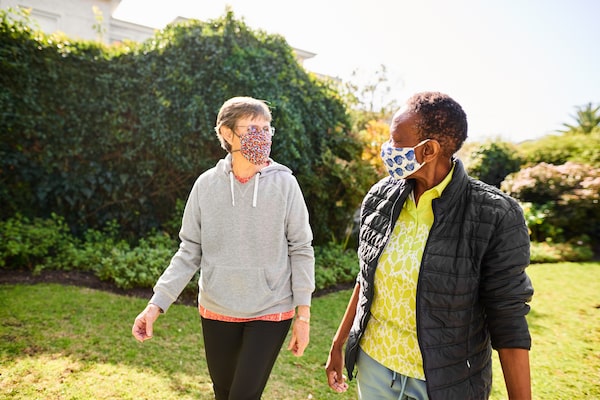
The pandemic has prompted more Canadians to pause and think about what matters most to them in life and relationships with friends and family are at the top of the list.AJ_Watt/iStockPhoto / Getty Images
Retirement is a time for picking up old hobbies, trying new activities and travelling the world (when there’s no pandemic to worry about). But amid all of these life changes, maintaining one key constant makes the difference: relationships with friends.
Retirees without close connections with friends and family are at greater risk of physical and social isolation, a recent Edward Jones survey notes. It cites a Statistics Canada report showing that one in four adults over the age of 65 is socially isolated, with too little contact and interaction with others.
The pandemic has prompted more Canadians to pause and think about what matters most to them in life, the Edward Jones report says, and relationships with friends and family are at the top of the list.
Seniors are more selective
Retirement is “a sacred time for friendship” – and was long before the pandemic came along, says psychologist and friendship expert Marisa Franco. Not only is there more time to spend with other people, but friendships tend to be more fulfilling during a person’s retirement years.
Dr. Franco says that’s because seniors are often more selective about what friendships they invest in, not wanting to waste time on less meaningful connections.
However, that doesn’t mean making new friends or keeping up with existing ones gets easier as you age. It may even be more difficult, especially for those who may have relied on the workplace to sustain their relationships.
Part of a healthy transition to retirement involves time “to regenerate that community that they might have lost from their workplace,” she says. It requires putting yourself out there, just as you might if you were dating.
But it’s not as simple as joining a club and expecting friendships to flourish automatically. Dr. Franco says people need to muster the energy and courage to talk to new people. They may need to try to make plans with them outside of the club environment, which can be especially challenging for introverts.
Dr. Franco says seniors need to trust that they will find others with common interests to become friends with.
“For people that are lonely later in life, you have to maintain optimism that there are people that want to meet you,” she says.
And once those connections are established, they need to be nurtured just like any other relationship, Dr. Franco adds.
Making a connection
Monique Guillemette, 65, learned the importance of friendship from her father, who always made time to check on the people he cared about – a habit she has since adopted.
”For me, I think it’s to make sure everybody has someone that they can connect with. Somebody that they feel that they’re important [to],” she says.
It’s a philosophy Ms. Guillemette has maintained over the years while living in different small towns in Ontario, where she says friends became “like family.”
She and her husband continue to work hard at building connections with people in their community near Peterborough, Ont., partly because the rest of her family lives further away in Toronto and Ottawa. She values having a support network nearby.
For Ms. Guillemette, the key to maintaining friendships is “not to be selfish.”
“It might feel like it’s a one-way street. Sometimes I feel how come it’s always me connecting with somebody,” she says.
But then she’ll notice all the people in her life who care about her and realize, “the more I give, the more I get back.”
Nurturing friendships
Caring and connecting with others is the foundation for any good friendship, says Patty Tseng, 68, of Vancouver.
She and her husband, Jack Tseng, 68, try to stay in touch with their friends and find that their Christian religion helps bind their community.
“We will send our love to them,” says Mr. Tseng, who often uses church events as a way to stay in touch with people and strengthen friendships.
Ms. Franco believes that finding and nurturing friendships is important for everyone’s well-being in retirement.
”You can’t live a happy life without connection, because connection is the number one thing that makes us happy,” she says.

Interested in more stories about retirement? Sixty Five aims to inspire Canadians to live their best lives, confidently and securely. Read more here and sign up for our weekly Retirement newsletter.